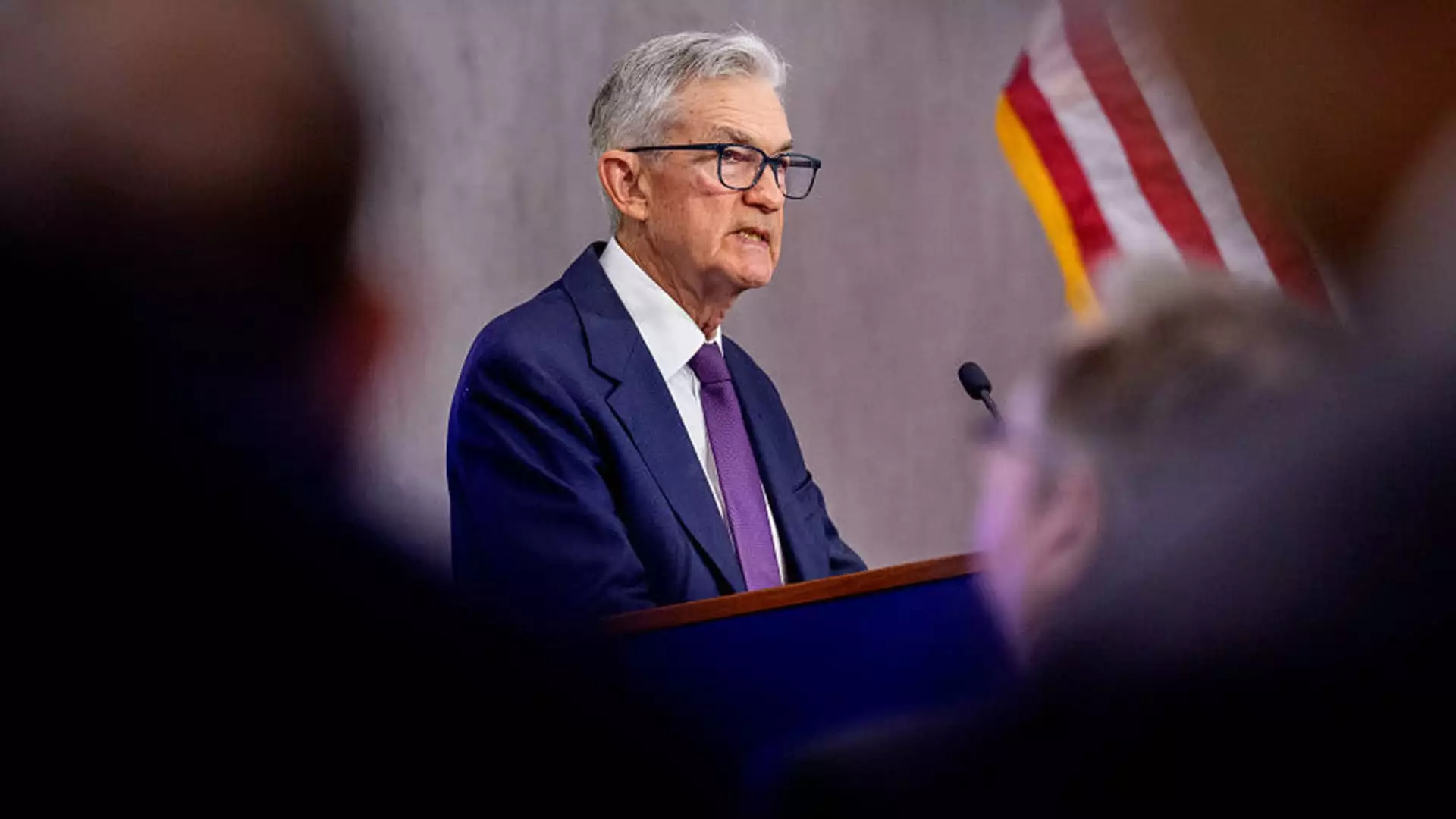The relationship between President Donald Trump and Federal Reserve Chairman Jerome Powell has long been contentious. Recently, Trump’s palpable frustration reached new heights as he urged Powell to cut interest rates in response to sobering employment data. The backdrop to this drama was the dismal report from ADP, which revealed that the private sector added a mere 37,000 jobs in May—far below the Dow Jones’ estimate of 110,000. In an era where nuanced economic understanding is paramount, one must question whether the president’s interjections are genuinely aimed at improving economic conditions or merely serve as a reflection of his personal anxieties and political survival.
Trump’s outburst on Truth Social illustrates a deeper malaise—not just of his administration but of a political mindset that prefers the quick fixes of monetary policy over the difficult, transformative work of structural reforms. His constant reminder that Europe has successfully cut rates multiple times serves as a rallying cry, but it significantly oversimplifies the unique economic landscapes of the U.S. versus Europe. Countries across the Atlantic face their own sets of challenges, and their policies do not translate directly to success.
Economic Policy or Political Strategy?
When Trump declares that Powell is “unbelievable” for not lowering rates, one must ponder whether it is prudent to influence monetary policy based on short-term political gains rather than long-term economic health. Powell has repeatedly stated the necessity to follow objective economic data rather than the whims of political pressure. However, the insistence from Trump creates a troubling precedent that prioritizes immediate electoral viability over careful economic stewardship.
The economic indicators suggest that data-driven decisions are not just good practice; they are imperative in maintaining market confidence. Yet, time and again, Trump appears to overlook this crucial detail in favor of a more populist approach that can appeal to the emotions of his base. By doing so, he risks undermining the very credibility of the Federal Reserve, which is designed to operate independently of political influence to secure monetary stability—an essential foundation for sustained economic growth.
The Precarious Balance of Power
The friction between Trump and Powell reached a boiling point during their recent meeting, which, according to both parties, contained both confrontational and earnest conversations regarding the economy. Trump’s ever-growing threats to dismiss Powell, although dialed back recently, only serve to convey a sense of instability and unpredictability in the highest echelons of government. In an era dominated by global economic uncertainty, such unpredictability can exacerbate fear in markets and among consumers.
Moreover, with the Bureau of Labor Statistics set to release its own job numbers shortly after the ADP figures came to light, the stakes could not be higher. Economists expect the BLS report to show a solid increase of 125,000 jobs, once again highlighting the disjointedness of the economic indicators. The disparity derived from how different organizations compile data means that the American public receives a piecemeal understanding of the state of the job market, contributing to an environment ripe for misinterpretation and political manipulation.
Global Implications of Domestic Policy
As Trump pressures Powell, the economic policies of foreign entities continue to diverge, particularly in Europe. The European Central Bank is expected to announce further interest rate cuts, a strategic move based on easing inflation concerns and sluggish growth. The contrast becomes evident; while Europe alters its course, Trump’s fixation on outdated paradigms of aggressive monetary easing fails to recognize the complexities of an interconnected global economy.
Adopting a centrist liberal perspective, one can argue that the president’s tactics foster an environment of economic instability rather than sustainable growth. As geopolitical tensions mount and global trade disadvantages remain, the temptation to retreat to familiar short-term strategies threatens to devastate the broader economic picture.
With a president unwilling to accept nuanced economic guidance, the onus lies on independent institutions like the Federal Reserve to adhere to principles that transcend political expediency. If not, future administrations may inherit an increasingly volatile economic landscape, the consequences of which could reverberate for years to come.

Leave a Reply